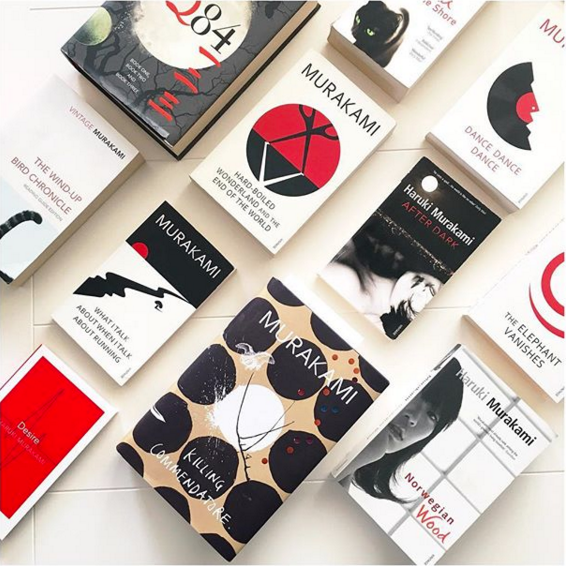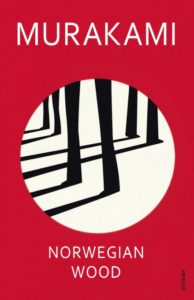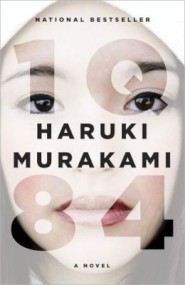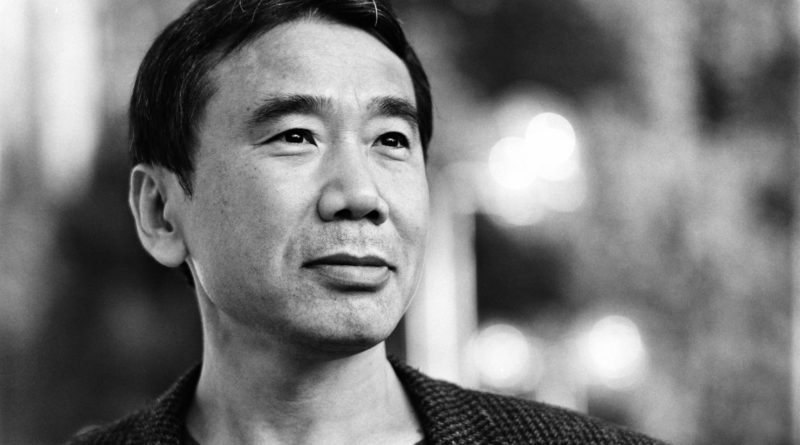Where to Start With Murakami Haruki?
Murakami Haruki is world-renowned as a novelist of magical realist fiction. His works, an almost obsessive urge to explore and understand the inner core of human identity. His heroes are on a journey into a metaphysical realm—the unconscious, the dreamscape, the land of the dead. To examine directly their memories of people and objects they have lost.
Murakami is a Japanese writer but he is also a “global” one, meaning that his works are best read not as expressions of Japanese culture. As examinations of questions that concern all humanity.
What is the nature of the individual self? Why are some people turned off by the structures of contemporary societies, and what alternatives do they have? What is the meaning of “happiness,” or “success,” in the global age? What is the soul, and how do we get one?
These are just a few of the many issues Murakami addresses, and they affect us all.
Why should one read Murakami Haruki?
Very, very believable characters: The characters you come across maybe towards one-dimensional. Well, that’s their quirk. They are not under-researched, or under-portrayed. They are very human. One can identify with Watanabe or Hatsumi very well. (characters in Norwegian Wood).
Sadness that is so real: The emotions, especially the morose ones, are depicted in a tragic manner. There is no tomfoolery, no redundant hyperbole, or random tearing-up scenes. The scenes are those that you as a reader can imagine well.
In our view, a bad emotional scene is one where you can easily find what the problem is and tell someone to change something. In Japanese Author, Murakami’s novels, these problems are more complex, and the compromises people make are required.
The fluidity of plot: Things don’t happen at breakneck speed. The books are not supernatural thrillers, but you feel the need to turn pages rapidly. The plot develops in a self-sustaining, organic way without catharsis. The sequence of events is also very clear.

If you haven’t ventured into the weird and wonderful world of Murakami Haruki, discover his writings with these books:
The Wind Up Bird Chronicle, 1999 Novel
This ticks every Murakami box – mysterious women, vanishing cats, wells, menacing villains, supernatural influences – not to mention wisdom, ingenuity, and powerful storytelling.
“The Wind-Up Bird Chronicle” does have its flaws, principally in its uneven design. Murakami has said that he does not plot his novels beforehand but lets the story reveal itself to him as he writes: it shows, especially in the way that neither Toru nor the novelist seems to know or care whether Toru’s adventures are real or illusory. And the juxtaposition of the harrowing, all-too-real war stories with the marvelous, supernatural events in Toru’s quest feels contrived.
The war narratives were almost certainly composed separately and then inserted into the novel to support its grand aspirations.
The Wind-Up Bird Chronicle in its mesmerizing style and tone.
Norwegian Wood, 1987 Novel
 A successful, 37-year-old businessman, Toru Watanabe, hears a version of the Beatles’ Norwegian Wood, and the music transports him back 18 years to his college days. His best friend, Kizuki, inexplicably commits suicide, after which Toru becomes first enamored, then involved with Kizuki’s girlfriend, Naoko.
A successful, 37-year-old businessman, Toru Watanabe, hears a version of the Beatles’ Norwegian Wood, and the music transports him back 18 years to his college days. His best friend, Kizuki, inexplicably commits suicide, after which Toru becomes first enamored, then involved with Kizuki’s girlfriend, Naoko.
Naoko is a very troubled young woman; her brilliant older sister has also committed suicide, and though sweet and desperate for happiness, she often becomes untethered. She eventually enters a convalescent home for disturbed people, and when Toru visits her, he meets her roommate, an older musician named Reiko, who’s had a long history of mental instability.
The three become fast friends. Toru makes a commitment to Naoko, but back at college, he encounters Midori, a vibrant, outgoing young woman. As he falls in love with her, Toru realizes he cannot continue his relationship with Naoko, whose sanity is fast deteriorating. Though the solution to his problem comes too easily, Murakami tells a subtle, charming, profound, and very sexy story of young love bound for tragedy. Published in Japan in 1987, this novel proved a wild success there, selling four million copies.
Kafka on the shores, 2002 Novel translated in 2005
Surely the most confusing of all Murakami novels, this one has three protagonists, each from a different generation. All suffer from some terrible trauma that has led them, Pandora-like, to open the “Gateway Stone” and enter the “other world.” Two return as half-persons; Kafka, the youngest of the three, confronts the metaphysical forest labyrinth determined to become “the world’s strongest fifteen-year-old boy.” Its principal message seems to be that, if we cannot change our fate, at least we can turn it to our advantage.
Murakami Haruki has written many novels about tough, disenchanted young men, and Kafka is no exception. Through his horny and visceral eyes, his sexual adventures, such as a non-therapeutic massage from a winsome teenager or sex with a woman in her mid-50s (who maybe his mother).
The pornographic rawness like his life, which has the simplicity of youthful fear behind it. And yet, by journey’s end, Kafka experiences losses that ultimately deepen and empower him, making his juvenile panting and belligerence worth our tolerance.
A Wild Sheep Chase, 2000 Novel

The original title of this novel is “An adventure concerning sheep,” and it lives up to that title. In it, the Murakami hero takes on a political-business-industry syndicate with apparently limitless money and power, and he does it on his own terms.
Some of the most interesting parts of the novel take place in the rural wilds of Hokkaido, which has been interpreted alternately as the hero’s inner mind, or as a mythological land of the dead.
At its heart, like many Murakami novels, this is a tale of conflict between the will of the individual and the demands of an impersonal state.
Oh, and there is a really cool, all-empowering sheep, too.
Author’s Pick
IQ84, Published in 2009
 IQ84 is a dystopian novel written by Japanese writer Murakami Haruki, first published in three volumes in Japan in 2009–10. It covers the fictionalized the year of 1984 in parallel with a “real” one.
IQ84 is a dystopian novel written by Japanese writer Murakami Haruki, first published in three volumes in Japan in 2009–10. It covers the fictionalized the year of 1984 in parallel with a “real” one.






